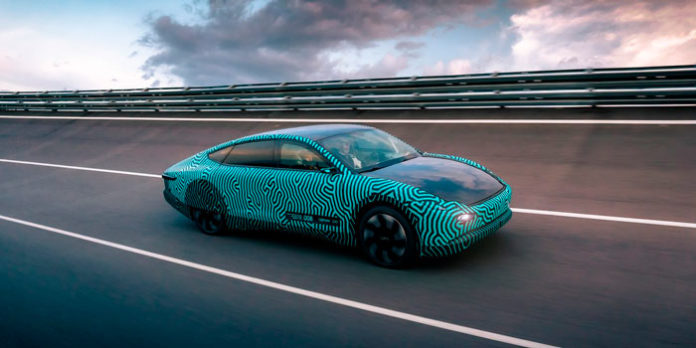Lightyear from the Netherlands has announced an important technological breakthrough that has enabled the Lightyear One solar-powered concept vehicle to travel the record 710 km on a single battery charge with a relatively small capacity of just 60 kWh.
Development of the Lightyear One car continued for 4 years. Unique technologies have been patented to increase the mileage of an electric vehicle at a relatively low speed. According to the developers, Lightyear One achieved an energy consumption of just 137 Wh per mile, traveling at 53 mph (85 km/h) during a track test at the Aldenhoven test center in Germany. This rate is 50% lower than the energy consumption of the most efficient current mass-produced electric vehicles.
The first official launch of Lightyear One was held back in 2019. Then the developers promised to reach the rate of autonomous car mileage of 725 km according to the WLTP standard. A recent test in Germany showed that Lightyear’s engineers were close to reaching the target.
A short video report on the course of the nine-hour test ride of Lightyear One is presented on the company’s YouTube channel. It is noteworthy that the drivers of the electric car were replaced every two hours, and the test was carried out in cloudy weather, which reduced the efficiency of recharging the battery from solar panels built into the lining of the car body. As a result, the additional mileage from the solar battery was only 40 km, while on a sunny day this figure reaches almost 72 km.
The exclusive 946 Lightyear One series will be launched in the first half of 2022, and mass production of electric vehicles will begin in 2024.







